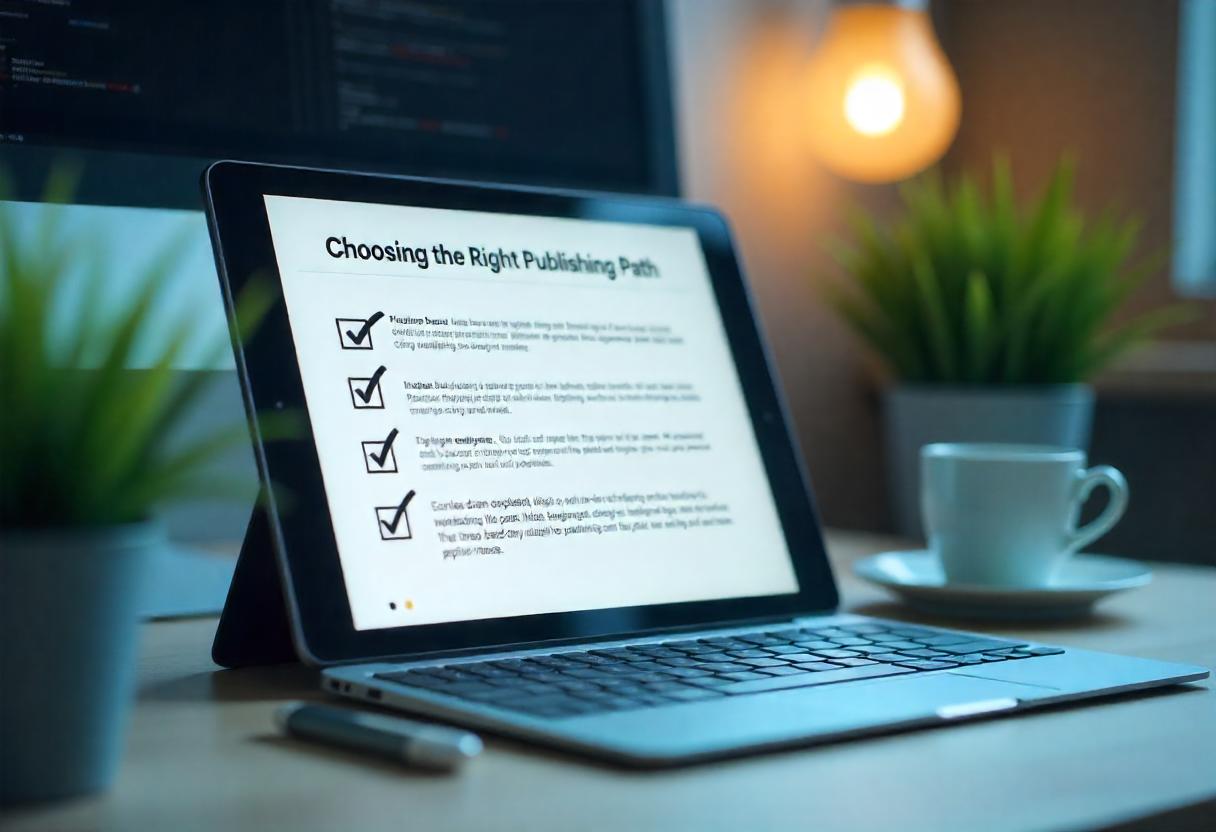When your game is finally ready to meet its audience, one major decision stands between development and launch: how you’ll publish it. Should you self-publish and take on full control? Should you partner with a marketing or distribution team to share responsibilities? Or should you go with a publisher who can finance, promote, and manage the entire launch process?
Each of these paths offers unique advantages and trade-offs. Making the right choice requires a clear understanding of your game’s strengths, your studio’s resources, and your long-term goals.
In this blog, we’ll walk through each of the three major game publishing routes, explaining them in depth so you can make the most informed decision.
What Are the Three Core Game Publishing Paths?
Let’s start by defining the three routes you can take when releasing your game.
1. Self-Publishing
You manage everything from game uploads to marketing campaigns without external help.
2. Partnering with External Teams
You stay independent but hire expert teams (e.g., marketing, PR, QA) to handle specific parts of the process.
3. Working with a Publisher
You sign with a game publisher who provides funding, resources, and distribution—often in exchange for revenue share and creative input.
Self-Publishing: Independence Comes at a Cost
What is Self-Publishing?
Self-publishing means that you, the developer, take complete responsibility for launching, promoting, distributing, and maintaining your game. It’s the most independent route, and it gives you full control over both creative and business decisions. You’re responsible for everything, including:
Key Responsibilities Include:
- Uploading and maintaining your game on platforms like Steam, itch.io, Epic Games Store, Google Play, or App Store.
- Creating and executing your marketing strategy.
- Running community campaigns across social media, Discord, or Reddit.
- Managing press and influencer outreach.
- Handling bug reports, updates, patches, and user support.
- Platform setup (Steam, Epic, itch.io, mobile stores)
Pros of Self-Publishing
- Full Creative Freedom: You control everything—tone, visuals, roadmap, and timing.
- Complete Revenue Ownership: After store platform cuts (like Steam’s 30%), all revenue is yours.
- Direct Player Relationship: You interact directly with your audience, building brand loyalty over time.
- No Contracts or Commitments: You don’t need to negotiate long-term deals or IP clauses.
Cons of Self-Publishing
- You Do It All: From dev QA to press kit creation, you’re juggling multiple roles.
- Heavy Workload: You wear many hats—developer, marketer, support lead, and PR manager.
- Marketing Expertise Needed: Without a proper campaign, your game may never reach the right players.
- Financial Burden: Every expense (ads, trailers, asset design, localisation) comes from your own pocket.
- Slower Scaling: Without external help, your growth may be limited by your personal bandwidth.
Who Should Choose Self-Publishing?
- Indie developers who have marketing experience or enjoy learning the business side.
- Studios with small, focused teams who value full autonomy.
- Creators looking to retain full ownership of their IP and build a long-term brand presence.

Partnering: Share the Load, Keep the Vision
What is Partnering?
Partnering means working with external specialists to handle specific aspects of your game’s release while you stay in charge of the core creative direction. It’s a flexible middle ground that allows you to stay independent but not isolated. Partners can include:
- Marketing agencies that run targeted ad campaigns, branding, and launch strategies.
- Influencer networks that manage relationships with streamers and YouTubers.
- Community management teams to engage your audience and moderate your channels.
- Localisation, QA, and platform consultants who streamline your launch across regions and platforms.
- Distribution consultants for optimising presence across Steam, PlayStation, Xbox, Switch, and mobile.
Pros of Partnering
- Tailored Support: Get expert help exactly where you need it.
- Maintain IP Control: You still own and steer the vision of your game.
- Scalability: Professional support helps you grow faster without building an internal team.
- Cost Predictability: Most partners work on a flat fee or contract basis, helping you manage budget expectations.
- Expert Execution: Specialists can produce higher-quality marketing, PR, and QA results than DIY approaches.
- Faster Time-to-Market: With help, you avoid bottlenecks and stay on schedule.
Cons of Partnering
- Upfront Costs: Even without revenue sharing, professional services require investment.
- Vendor Dependence: Success depends on the quality and reliability of your partners.
- Project Coordination Required: You must oversee all third-party efforts to ensure alignment with your brand.
- Dependence on External Teams: The wrong partner could misrepresent your game or waste your budget.
Who Should Choose Partnering?
- Studios who want expert support in specific areas without giving up ownership.
- Developers with a playable prototype or early access build needing visibility.
- Indie teams with limited internal resources but enough budget to hire specialists.
Going with a Publisher: Boost Your Reach with Backing
What Does a Game Publisher Do?
A game publisher offers end-to-end support for your game’s release—funding development, managing distribution, running global marketing campaigns, organising localisation and QA, and handling customer support. In exchange, they take a significant share of your game’s revenue and may ask for creative input or IP rights.
Services a Publisher May Provide:
- Full or partial funding for development
- PR, press outreach, and trailer production
- Global influencer campaigns
- Localisation and platform certification
- Press kit design and pitch management
- Storefront features (Steam Next Fest, console spotlights)
- Access to large fanbases and existing publisher networks
Pros of Working with a Publisher
- Strong Financial Backing: Some publishers cover all development and marketing costs.
- Industry Experience: Established publishers have proven launch frameworks, media contacts, and distribution pipelines.
- Global Visibility: Their reputation can get your game featured, covered by press, and picked up by big influencers.
- Hands-Off Marketing: Focus on game development while professionals handle campaigns.
Cons of Working with a Publisher
- Revenue Share: A large percentage of your game’s revenue—often between 30–60%—will go to the publisher.
- Potential Loss of Creative Control: Some publishers may influence your roadmap, deadlines, or content decisions.
- Long-Term Commitments: Contracts can be restrictive, especially regarding sequels or future IP rights.
- Tough Contracts: Negotiating fair terms can be difficult without a legal team.
Who Should Choose a Publisher?
- Studios developing larger-scale or high-risk games that require external funding.
- First-time developers lacking experience in marketing and publishing.
- Teams targeting multi-platform or console releases that require negotiation and certification support.

How to Choose the Right Publishing Path
Choosing the right publishing model should be based on your goals, resources, and experience. Here's a breakdown of what to evaluate:
1. Do You Need Full Control?
If yes, self-publishing or partnering gives you creative freedom. Publishers may influence your direction.
2. Do You Have Marketing Experience?
If not, working with an agency or publisher can prevent wasted budgets and poor outreach.
3. Do You Need Funding to Finish Development?
A publisher can help. If you already have a finished product, self-publishing or partnering may be more profitable.
4. Are You Building a Long-Term Brand?
Maintaining ownership through self-publishing or strategic partnerships is better for your studio’s future.
Quick Comparison Table
Why Are Events Important?
Special events, sales, and time-limited offers can drive both engagement and spending. They give players a reason to come back and something to look forward to.
How to Run Effective Events
- Unique Content: Offer exclusive rewards or experiences that aren’t available at other times.
- Clear Communication: Use in-game notifications and social media to build anticipation.
- Balance Accessibility: Make sure both paying and non-paying players can participate and enjoy the event.
Example: Pokémon GO Events
Pokémon GO regularly features limited-time events with unique Pokémon, bonuses, and special research tasks. These events encourage players to log in and participate, often driving increased spending.

Choosing how to publish your game is one of the most strategic decisions you’ll make. There’s no universal best route—it comes down to what you value most: control, speed, funding, or reach.
If you want to remain independent but ensure professional results, partnering might be the sweet spot. Agencies like The Game Marketer specialise in providing game-focused marketing solutions that help you scale without sacrificing ownership.
If your game requires high production budgets and broad distribution, going with a publisher can open doors that are hard to unlock alone. And if you’re a seasoned indie or want to own every aspect of your release, self-publishing gives you total freedom—if you’re ready for the responsibility that comes with it.
No matter which route you choose, make sure it aligns with your game’s needs, your studio’s vision, and your long-term strategy.



